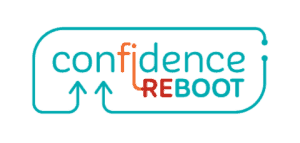
Humility meets confidence, a cocktail that sounds as odd as pineapple on pizza, yet is as delightful! Wondering how to strike this balance? This journey unveils all the glory and art of being your own cheerleader while staying grounded – a life recipe for growth, success, and authentic relationships. Read on and transform!
So, what is a short answer to how to be both humble and confident?
To be both humble and confident, balance self-awareness with self-assuredness. Know your strengths and don’t shy away from them, but also recognize your limitations and areas for growth. Express your ideas assertively, yet be open to receiving feedback too. Celebrate your accomplishments without belittling others. Always maintain a learning attitude and respect for others, which underpins humility and fosters healthy confidence.
Table of Contents
Understanding Humility
Understanding humility is a fundamental step in cultivating both humility and confidence in oneself. Humility is not about self-degradation or lack of self-confidence; rather, it is about maintaining a balanced view of oneself and one’s abilities.
Humble people are secure in their abilities and talents, but they also recognize that there is always more to learn. They take pride in their achievements without feeling the need to blow their own horn or draw attention to themselves.
At the same time, humble people are generous with compliments for others and genuinely celebrate other’s successes.
They dish out positive feedback and praise without worrying that it will diminish their own worth or abilities.
By acknowledging that we do not have all the answers, we make room for new knowledge and perspectives, thereby facilitating personal growth and leadership development.
Moreover, humility involves being honest about our mistakes and failures. By taking responsibility for our actions and learning from our mistakes, we foster resilience and emotional strength.
It cultivates a more authentic form of confidence, one that is not threatened by failure, mistakes, doubt or criticism, but rather is enhanced by it.
In essence, understanding humility is about recognizing our place in the world and the grand scheme of things, embracing our imperfections, respecting others, and maintaining an unquenchable thirst and desire for knowledge.
This forms the basis of a strong, sustainable, and genuine form of confidence that can significantly improve our relationships, our personal growth, and our overall life satisfaction.
The Art of Confidence
The art of confidence is a delicate balance that involves knowing and valuing oneself while engaging positively with others. It’s a fine line to walk between not being afraid to speak out and making sure that your voice is heard, while also considering the viewpoints of others.
Contrary to some misconceptions, genuine confidence does not equate to arrogance, pride or a false sense of superiority; it is a quiet assurance in one’s abilities, values, and worth.
The art of confidence, when coupled with humility and compassion, fosters a healthy and robust self-concept that promotes personal growth and meaningful interactions.
About Self-Awareness
Self-awareness is a cornerstone of self-assurance and confidence. Understanding your strengths, capabilities, passions, and values enables you to recognize your worth and potential. It’s crucial to remind yourself of your successes and achievements, but also to accept your weaknesses and areas of growth without self-criticism.
Self-awareness involves an honest evaluation of oneself, which sets the foundation for self-assuredness and enables us to navigate challenges and seize opportunities effectively.
Confidence also involves resilience, an ability to bounce back from setbacks and maintain a positive attitude in the face of adversity, doubt, and fear. Resilience comes from understanding that failure is not a reflection of your worth, but an opportunity for growth.
It’s about not allowing negative experiences to undermine your confidence, but rather using them to act as stepping stones to become stronger.
Assertiveness
Assertiveness is another facet of both confidence and humility. It’s the ability to express your thoughts, feelings, and needs in a respectful and straightforward manner.
Being assertive does not mean imposing your views on others, but standing up for yourself and communicating effectively. This fosters respect in your interactions and bolsters your self-esteem.
Lastly, confidence in leadership involves a growth mindset – a belief that abilities and intelligence can be developed over time.
This belief fuels a love for learning and a resilience that is essential for great accomplishment. It promotes the confidence of leaders to take on challenges and view them as opportunities to learn and grow, rather than as threats.
Cultivating confidence is a journey, not a destination. It requires continuous self-awareness, learning, and practice.
But when paired with humility and faith, this form of confidence can lead to a fulfilling life of growth, pride, accomplishment, and positive relationships.
Balancing Humility and Confidence
Creating a balance between being humble and being confident is key. Too much humility can lead to self-deprecation, while overconfidence can come off as arrogant. Striking a balance helps to exhibit a strong, yet respectful personality.
Here are 10 tips to keep things in equilibrium:
- Self-Awareness: Understand your strengths and weaknesses. Recognize your accomplishments without exaggerating or diminishing them. This balance of self-awareness is key to both humility and confidence.
- Be Open to Learning: Cultivate a growth mindset. Embrace the fact that there’s always more to learn and grow from, which helps you stay humble while boosting your confidence in your ability to improve.
- Embrace Failure: View failures as opportunities for growth rather than as defeats. This perspective fosters resilience, helping you maintain confidence in the face of setbacks and keep humble by acknowledging your imperfections.
- Practice Active Listening: Be genuinely interested in other people’s perspectives and experiences. This demonstrates respect for others, bolstering your humility, and it also broadens your understanding and knowledge, strengthening your confidence.
- Express Gratitude: Regularly express appreciation for others and for the opportunities you have. Gratitude helps keep you grounded and humble, while acknowledging the positive aspects of your life builds confidence.
- Practice Assertiveness: Communicate your needs and beliefs respectfully and clearly. This displays confidence without infringing on the rights and beliefs of others, thereby balancing it with humility.
- Seek Feedback: Regularly ask for constructive feedback. This will help you stay open to improvement (humility), and also shows confidence in your ability to grow from criticism.
- Avoid Comparison: Don’t compare yourself to others. This helps you maintain confidence by preventing feelings of inadequacy, and fosters humility by reminding you that everyone has unique strengths.
- Acknowledge Others: Recognize and celebrate the accomplishments of others. This shows humility by reminding you that you’re not the only one with achievements, and it can also enhance your confidence by reinforcing positive, respectful relationships.
- Self-Care: Maintain physical, emotional, and mental well-being. A healthy body and mind support a balanced sense of confidence, and treating yourself kindly encourages a humble respect for your own needs and limitations.
A healthy dose of humility and confidence offers numerous benefits that contribute to personal growth, professional success, and overall happiness. The interplay between these two traits generates a resilient and approachable personality, contributing to a fulfilling and balanced life.
It’s all about finding that sweet spot where humility and confidence work together in harmony. It’s a simple yet powerful combination that can open up a world of possibilities and bring joy to you and those around you.
How To Build Confidence And Humility
Building the traits of confidence coupled with humility requires consistency and patience. Start small; be mindful of your thoughts and actions, being sure to check in with yourself regularly.
Here are 8 tips on how to achieve this goal:
- Personal Growth: A humble person is always open to learning, leading to continuous self-improvement. Coupled with confidence, this results in a proactive approach towards personal development, as you are willing to acknowledge your weaknesses and make efforts to improve.
- Strong Relationships: The mix of humility and confidence fosters healthier relationships. Confidence allows you to assert your needs and opinions, while humility helps you respect others’ viewpoints and consider their feelings. This balance strengthens communication and promotes mutual respect.
- Career Success: In professional settings, humble confidence is often recognized as a mark of a great leader. It enables you to make bold decisions (confidence), while also being receptive to feedback and acknowledging the efforts of your team (humility).
- Mental Well-being: Humility prevents the unhealthy egotism that can lead to stress and dissatisfaction, while confidence helps combat feelings of inadequacy. Thus, balancing these traits can contribute significantly to mental well-being.
- Resilience: By acknowledging your mistakes (humility) and having faith in your ability to overcome them (confidence), you cultivate resilience. This trait is crucial for handling life’s challenges and turning them into opportunities for growth.
- Authenticity: The combination of humility and confidence allows you to present yourself genuinely, without feeling the need to overstate or undervalue your abilities. Authenticity is key to earning the respect and trust of others.
- Enhanced Decision-Making: Confidence equips you to make decisions assertively, while humility keeps you open to other perspectives that could improve your decision-making process.
- Practice Gratitude: Acknowledging and expressing gratitude for your own accomplishments helps you stay humble. At the same time, it reinforces a sense of self-worth, increasing confidence in your own abilities.
Embracing humility and confidence can help individuals live more fulfilling, balanced lives.
These qualities, while seemingly opposite, complement each other, contributing to a stronger, more versatile character that can navigate life’s ups and downs with grace and determination.
Final Thoughts: The Path to Humility and Confidence
So, there you have it! Our guide on how to be humble and confident. Remember, it’s a journey, not a destination. Start today, strive to remain humble, and you’ll see how these traits can positively influence your life.
FAQs: Your Questions Answered
Q: What are some examples of being humble and confident?
A: Accepting constructive criticism without getting defensive, speaking up about your ideas in a meeting, or acknowledging when someone else’s idea is better than yours.
Q: How can I become more humble?
A: Practice humility and gratitude, listen more than you speak, accept that you don’t know everything, listen and seek to learn from others.
Q: How does confidence affect one person‘s life?
A: Confidence can lead to improved performance, better decision-making, greater resilience, and overall happiness. It’s crucial to personal and professional success.
Remember, understanding how to be humble and confident can transform your life and relationships. So, why not start now?
